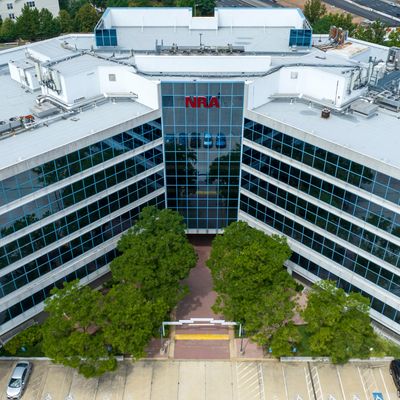

In 2017, five years after George Zimmerman killed Trayvon Martin, the National Rifle Association marketed an innovative new product to its 5 million or so members: Carry Guard, a kind of insurance to compensate future Zimmermans.
Carry Guard was, simply put, protection for people who might shoot someone in self-defense. It was sold through big insurance companies like Chubb and Lloyd’s, which paid policyholders up to $150,000 in legal fees for criminal-defense cases and up to $1 million in civil-liability protection. Carry Guard was almost immediately condemned by critics as “murder insurance.” In 2018, New York State’s financial regulator pressured insurance companies to stop offering it in the state, where it was illegal. The NRA ultimately ended the financially successful program everywhere two years later, after facing challenges throughout the country. It later sued New York, claiming that the state regulator’s affinity for gun regulation made its pressure campaign against the NRA a First Amendment issue. The NRA brought on the American Civil Liberties Union to represent it, claiming that the regulator had gone too far in punishing speech.
On Thursday, the Supreme Court sided with the NRA in a unanimous decision that New York’s regulator had done just that. The opinion, written by Justice Sonia Sotomayor, is narrow. It doesn’t suddenly revive Carry Guard, nor does it strike down any laws that would make it available in New York at any time in the future. Instead, it focuses on the way that Maria Vullo, then the head of the New York Department of Financial Services, did her job. It also allows the NRA to revive a free-speech argument in the lower courts.
The nine justices ruled that Vullo went too far in pressuring insurance companies to end its associations not just with the NRA but with all affiliated pro-gun groups. “Vullo’s alleged communications — whether seen as a threat or as an inducement — were reasonably understood as coercive,” the Court ruled. In one memo it cited, Vullo asked the insurers to “review any relationships they have with the NRA or similar gun promotion organizations.” Vullo also apparently told Lloyd’s executives that she would focus on the NRA’s program and “ignore other syndicates writing similar policies.” “The message was loud and clear,” the Supreme Court ruled. “Lloyd’s ‘could avoid liability for [unrelated] infractions’ if it ‘aided DFS’s campaign against gun groups’ by terminating its business relationships with them.” Vullo has maintained that she did not violate the NRA’s rights and was properly using her power as a regulator.
The NRA celebrated its win but hasn’t said much more about what it will do next. (A DFS spokesperson declined to comment.) The case can now head back to the Second Circuit Appellate Court, where the NRA can argue that Vullo had violated its free-speech rights. Still, this is a case about a single state regulator. It won’t do much to recharge the NRA, which was perhaps at its zenith when it began offering Carry Guard and has been on a long losing streak since then.
Source link




